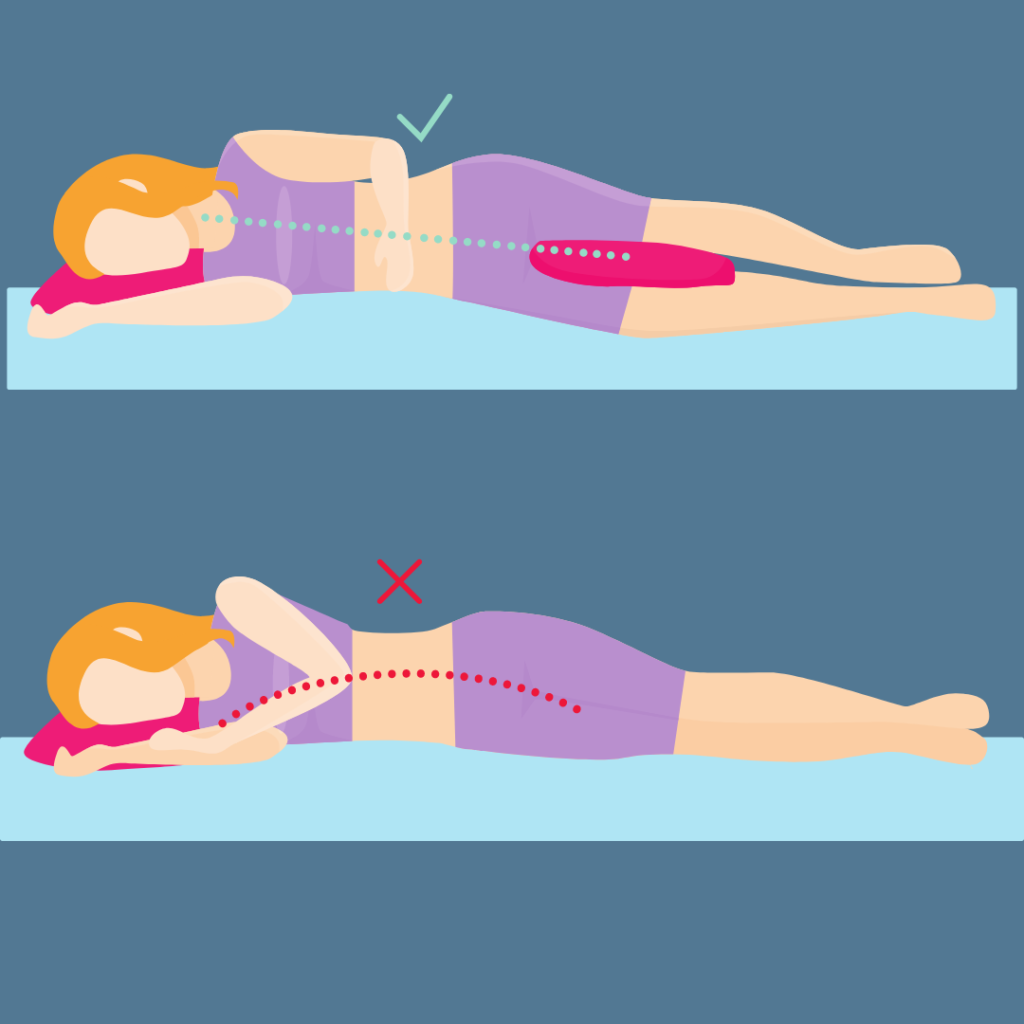Normally I talk about habits and all of the behaviours you should know about how to sleep better.
BUT – there are many things you can change that aren’t habit related, but that will ensure you have a good night’s sleep.
Here are my top 8! Even tweaking one or two of these can drastically improve your sleep.
1. How is your mattress? My grandfather always used to say there are 3 things worth investing in: a good pair of shoes, a good chair, and a good mattress. I don’t think he was wrong. A good mattress is so important for a good night’s sleep.
A mattress should be comfortable, not cause you pain, and (if you can find the right material), keep you cool. There are two main factors you want to take into consideration when buying a new mattress – the firmness and the material. Your weight and your sleeping position are going to affect both of these. If you’re lighter and sleep on your stomach, you’ll need a very different mattress from someone who is heavier and sleeps on their side.
If you struggle with any sort of back/neck/hip pain, finding the right mattress firmness or material can make a world of difference. This might be something you need to play around with and try out different ones.
Don’t forget to rotate your mattress 2-3 times a year!
Your mattress will need to be replaced on a pretty predictable schedule, but it does depend on what it’s made of. A spring mattress will need to be replaced every 7-8 years, while you should get 9-10 years out of a memory foam mattress.
This is a great resource for how to choose a mattress: https://www.sleepfoundation.org/mattress-information/how-to-choose-a-mattress
2. How is your pillow? Are you a stomach sleeper? A back sleeper? A side sleeper? All of these things will impact the type of pillow you need, and the wrong pillow can make sleeping very uncomfortable. The goal is to keep your neck in line with your spine as much as possible.
Stomach sleepers – this is the hardest position to keep your neck and spine in alignment. Stomach sleepers will want a pillow that’s less full and relatively soft.
Side sleepers – this position tends to take most of their weight on their shoulder, and a pillow that’s not at the right angle can really put excess strain on your neck. a firmer, fuller pillow to keep your neck in line and take some of the weight off of your shoulder.
Side sleepers also might find it helpful to sleep with a pillow in between their knees to keep their lower back and hips in alignment. This position can help to alleviate low back or hip pain.
Back sleepers – if you prefer to sleep on your back you’ll want a medium thick, firm pillow to keep your head in a neutral position. You don’t want your head propped up at an uncomfortable angle.

3. What’s the temperature of your bedroom? Your body needs to drop by about 1 °C in order to fall asleep and stay asleep. If your room is too warm at night, it can make it very difficult to drop your temperature. If you consistently find yourself too hot at night, try turning down your thermostat a bit. Making things a little bit cooler can drastically improve the ability to fall and stay asleep.
4. How hot do you get at night? Obviously, the temperature in your bedroom plays a big role here, but hot sheets, hot pajamas, or good old hormones can make you overheat at night, even if your thermostat is set to a nice cool temperature. Sleeping with layers on that can be removed, avoiding sheets or blankets that you find too hot, or having access to a fan that you can turn on at night can help if you wake up too hot. Dealing with night sweats that come with hormone changes (either in peri-menopause or menopause) is a whole other ballgame and will need a separate blog post!
5. How is your breathing at night? If you consistently find yourself stuffed up at night or in the morning when you wake up, it’s possible that allergies are to blame. It could be dust mites in your pillow or mattress – a good hypoallergenic mattress cover or pillow cover can make a world of difference. If you have seasonal allergies, keeping your windows closed during the day can keep the allergens out. Changing your furnace filter on a regular basis can help reduce the allergens circulating in the air. Also, cleaning your ducts yearly is a worthwhile investment if you suffer from allergies.
Something like Breathe Right strips can open your nose enough to improve your breathing. Doing a nasal rinse every evening before bed can help clear your sinuses to improve breathing. A handy side effect of regular nasal rinses is that they can also help improve allergies.
6. What lights are on in your bedroom? Any lights in your bedroom can interfere with melatonin production and make it harder to fall asleep. This could mean night lights, lights from clocks, lights from devices, or streetlights shining in from outside. You’re aiming for zero light! So unplug those nightlights, flip your clock around, turn those devices off, and invest in a great pair of blackout blinds.
7. What screens are in your bedroom? These are a source of light, which will interfere with melatonin production, but also a distraction and can increase anxiety before going to bed (depending on what you’re doing with your device). My recommendation is always no screens in the bedroom. Watch TV, check your social media, do your work somewhere else in the house, then head to your bedroom and make it a screen-free zone.
8. What else are you using your bed for? If you’re using your bedroom as a virtual meeting background, a desk, a table, and more, that can make falling asleep a lot more difficult. If at all possible, find a different space to do that kind of work, even if it’s just in a different corner of your room. Keep your bed just for sleep and sex! Associating your bed with only sleep can help improve your ability to fall asleep at night.
Which ones of those can you tweak or make changes to? Give it a try, and let me know how it goes. And like always, if you have any questions or need some support to improve your sleep, let me know!
